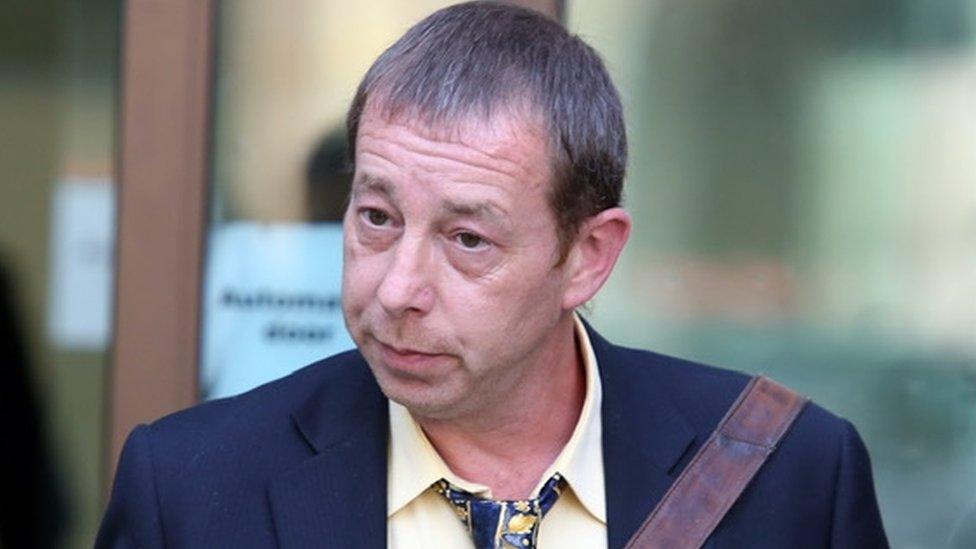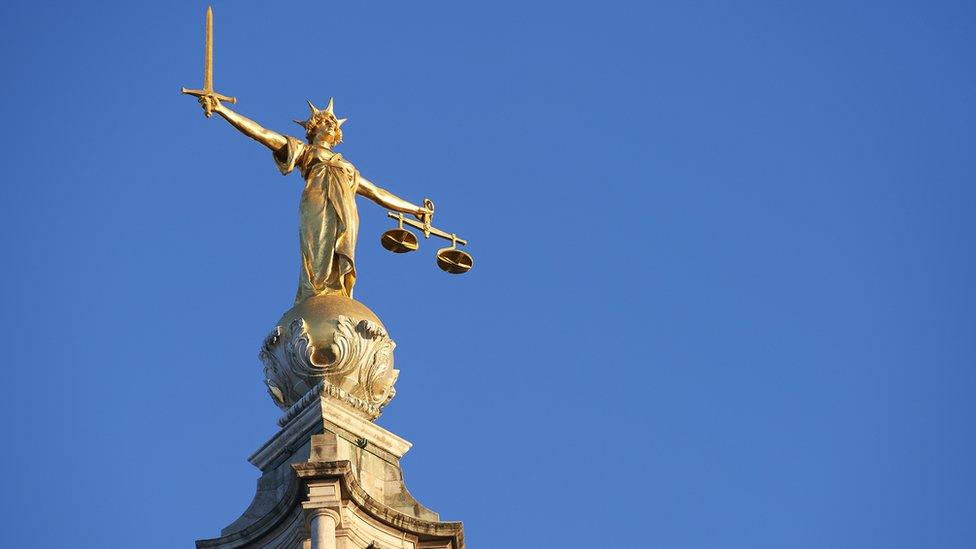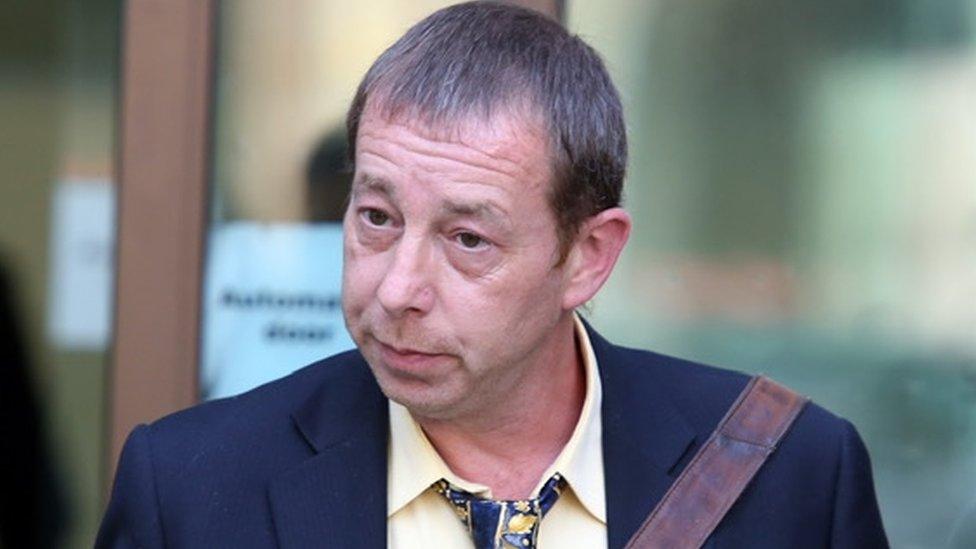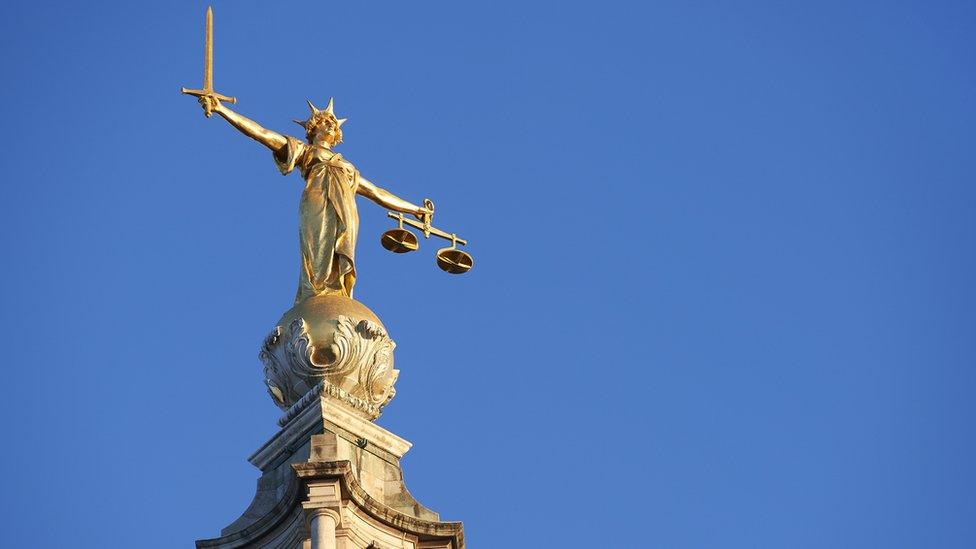Missile secret email was civic duty, accused tells trial
- Published

Simon Finch is accused of sharing technical details about a UK missile system classified as "top secret"
A former Ministry of Defence worker felt it was his duty to send an email containing top secret information after being "tortured" by police, a court has heard.
Simon Finch is accused of breaching the Official Secrets Act by sharing details classified as "top secret".
The 50-year-old, from Swansea, said he had to do "something that attracted national attention" after police failed to protect him from homophobic attacks.
He denies all charges against him.
The jury heard the software engineer had worked for companies including BAE Systems and QinetiQ, contracted to provide services to the Ministry of Defence, from the late 1990s until 2018.
In October 2018, it is alleged Mr Finch, of Penlan Crescent, Uplands, sent an email to eight recipients including law firms, charities, trade unions, an MP and a US citizen, containing classified information he had accessed.
In the email, he is said to have written: "Since the UK has refused me any justice, compensation, or even treatment for these appalling crimes then it has no right to expect my loyalty."
Mr Finch told the Old Bailey he had been homophobically abused in the street twice in 2013, but police failed to take his allegations seriously, so he resorted to carrying weapons to protect himself.
After being arrested for carrying a knife in a pub in Merseyside, he told the court police refused to let him go to the toilet, and he had to go on the floor.
He was later sectioned, but told the jury he was assessed by "extremely hostile psychiatrists", before losing his job.
Mr Finch said he felt "tortured" and "assaulted" by police, and had concerns his human rights had been infringed.
He told the court he had to send the email as he "knew I couldn't walk away from what happened to me, I felt like I had a civic duty".

The trial is taking place at the Old Bailey in London
Asked by defence counsel Stuart Trimmer QC if he got "lippy" with the arresting officers, Mr Finch told the court: "I was honestly quite angry.
"After all the work I had done with the state, they were leaving me at the mercy of those bigots, but when I wanted to defend myself they were coming down on me really heavily."
In 2016, he pleaded guilty to possessing an offensive weapon and a bladed article, for which he received a suspended sentence.
He left his job at BAE Systems in February 2018, several months before the alleged leak.
He denies recording and disclosing secret defence information and refusing to give authorities access codes to three electronic devices.
The trial continues.
- Published27 October 2020

- Published26 October 2020
